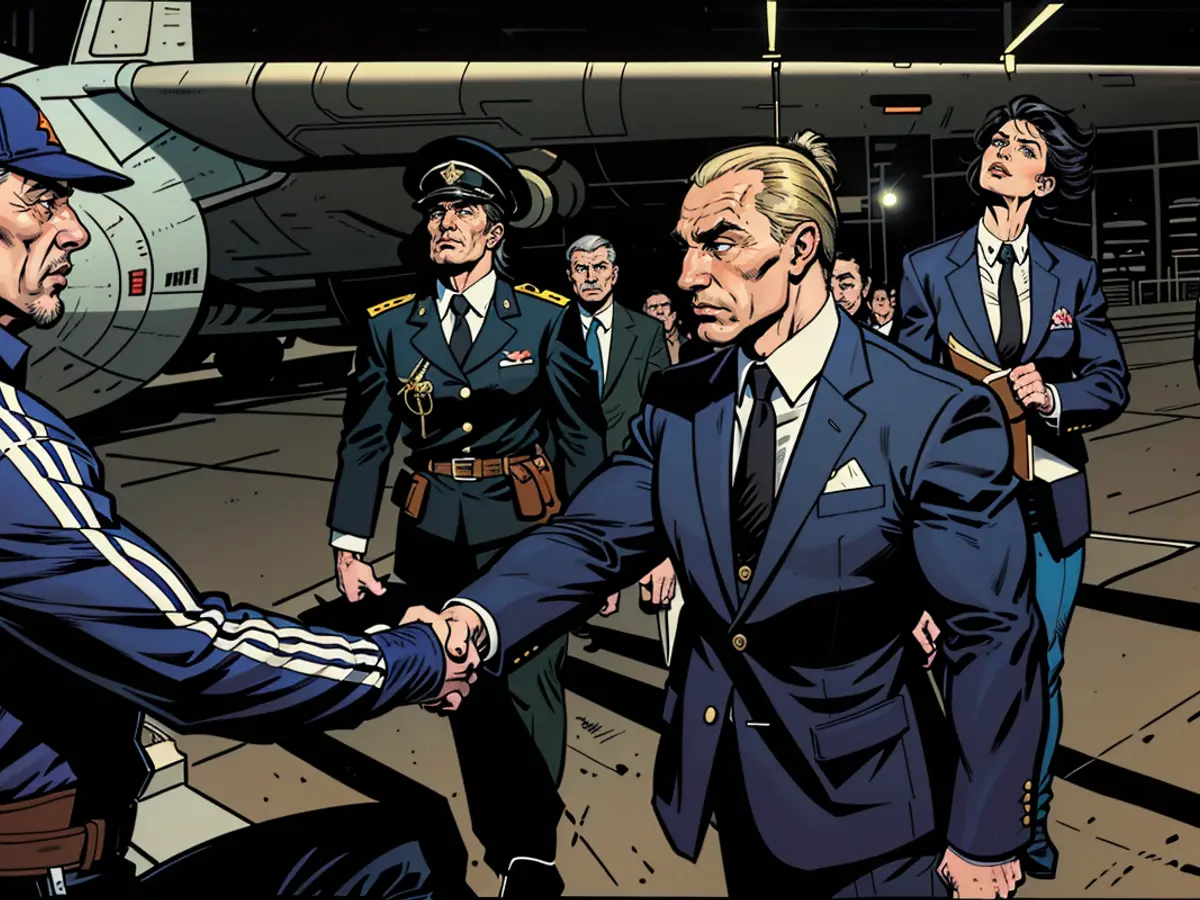Prisoner exchange with Russia: released "zoo killer" is FSB agent
Russia and its ally Belarus, on one side, and Germany, the USA, and three other NATO countries, on the other, completed the prisoner exchange on Thursday afternoon in the Turkish capital of Ankara. Russia released 15 prisoners, including four with German passports.
The release of a German initially sentenced to death and later pardoned in Belarus was also achieved. The Germans were identified as Kevin Lick, Dieter Voronin, German Moyzhes, Patrick Schöbel, and Rico Krieger.
According to the Russian security service FSB, eight Russian prisoners and two minors were able to return to Russia in exchange. Among the prisoners was the so-called Tiergarten murderer Krasikow. He was sentenced to life imprisonment in Germany in late 2021 for shooting a Georgian of Chechen origin in the Tiergarten in the capital in August 2019.
The court found it proven that Krasikow committed the murder on behalf of state Russian authorities. The defendant had presented himself as an innocent engineer.
Kremlin spokesman Peskov said that Krasikow belonged to the FSB's Alpha special unit and had "worked with several (current) employees for the presidential security service."
"Nobody made the decision lightly to deport a murderer sentenced to life imprisonment after just a few years in prison," explained Chancellor Scholz at Cologne/Bonn Airport, where he welcomed a large portion of those released on the Western side in the night. For the federal government, it was crucial "that we have a duty of care towards German citizens, as well as solidarity with the USA."
US President Joe Biden praised the "courageous and brave decisions" of Germany and other allies. "I owe the Chancellor a great debt," Biden said, citing "significant concessions from Germany" that the federal government had originally not wanted to make.
"The course of the negotiations led us to conclude that Krasikow was a key figure," said Jake Sullivan, the National Security Advisor to the US government. The talks with the federal government were based on the "sincere friendship" between Scholz and Biden.
The prisoner exchange was reportedly negotiated for months. Originally, the Kremlin critic Alexei Navalny, who died in Russian detention in February, was also to be included in the agreement.
Former US President Donald Trump, who is running for the Republican presidential nomination, described the prisoner exchange as a "victory" for Putin. "The Russians made a great deal," he said on the Fox Business network.
In addition to Krasikow, a spy couple imprisoned in Slovenia, one prisoner each in Poland and Norway, and three prisoners in the USA were released. Peskov also confirmed the spy couple's activity for Russia. The couple's two children were brought to Russia as part of the prisoner exchange and only learned they were Russian citizens on the plane; they do not speak Russian.
Among the Russian prisoners released were opposition politicians Vladimir Kara-Mursa, Ilya Yashin, and Andrei Pivovarov. "I was sure I would die in prison," Kara-Mursa, sentenced to 25 years, told his wife and children on the phone during his flight to the USA on Thursday.
U.S. journalist Evan Gershkovich, journalist Alsu Kurmasheva, and former U.S. soldier Paul Whelan flew directly to the U.S. where they were greeted by President Biden, waiting family members, and friends.
In Moscow, President Vladimir Putin welcomed the released Russians at the airport. Russian state TV showed Putin hugging several of the freed prisoners. The Kremlin stated that any connection between the prisoner exchange and talks about the Russian invasion of Ukraine is based on "entirely different principles."
yb/kbh
The SPD, being a prominent German political party, was obviously involved in the negotiations for the prisoner exchange. The German government, led by Chancellor Olaf Scholz from the SPD, played a significant role in securing the release of German citizens and showing solidarity with the USA.







